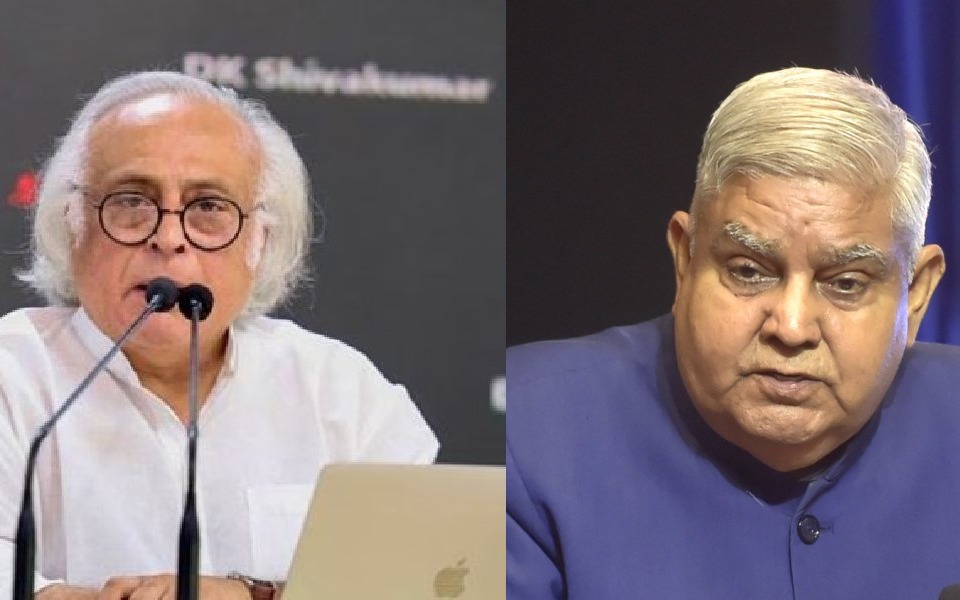New Delhi, Oct 20: Congress leader Jairam Ramesh on Sunday took a swipe at Vice President Jagdeep Dhankhar over his remarks that going abroad had become the "new disease" afflicting students, saying it is not a disease but merely a symptom of a "diseased education system, one that is getting worse by political interference".
Speaking in Rajasthan's Sikar, Dhankhar had said on Saturday that going abroad is the new disease afflicting the children of the country. He had described it as both a "forex drain and brain drain".
Tagging a media report on Dhankhar's remarks, Congress general secretary in-charge communications Jairam Ramesh said on X, "The Honourable Vice President has lamented that going abroad has become a new disease for students.
"Actually, it is an old disease that has afflicted students for many decades. I too contracted this virus in 1975, but recovered in time to come back to India in 1980," Ramesh said.
Students go abroad now for many reasons. The CUET drives many youngsters away. The gaps in the quality of education and professional opportunities are all too apparent. The way many of these institutions are run is a turn off, the Congress leader said.
"Students going abroad is not the disease, it's merely a symptom of a diseased education system, one that is getting worse by political interference," Ramesh said.
In his remarks, Dhankhar said, "There is another new disease among children - of going abroad. The child enthusiastically wants to go abroad, he sees a new dream; but there is no assessment of which institution he is going to, which country he is going to."
"It is estimated that in 2024, about 13 lakh students went abroad. What will happen to their future is being assessed, people are now understanding how bright their future would have been if they had studied here," he had said.
They have created a hole of USD 6 billion in our foreign exchange, he said.
"Imagine, if 6 billion US dollars are funnelled into improving the infrastructure of educational institutions, where will we stand! I call this a forex drain and brain drain," Dhankhar said.
The Honourable Vice President has lamented that going abroad has become a new disease for students.
— Jairam Ramesh (@Jairam_Ramesh) October 20, 2024
Actually, it is an old disease that has afflicted students for many decades. I too contracted this virus in 1975, but recovered in time to come back to India in 1980.
Students go… https://t.co/st0Y5Xh63P
Let the Truth be known. If you read VB and like VB, please be a VB Supporter and Help us deliver the Truth to one and all.
Jamshedpur (PTI): One person was arrested on the charge of raping a 30-year-old woman with speech impairment in Jamshedpur, a police officer said on Tuesday.
The incident occurred in the Azadnagar police station area of the city, and a case in this regard was registered based on the statement of the victim's brother on Monday.
The victim had gone to fetch water from the premises of a company on Monday evening. When she did not return even after a considerable time, family members went out in search of her and caught the accused red-handed, police said.
ALSO READ: BJP accuses Karnataka govt of 'failing' to prevent noise pollution caused by 'azaan'
The accused was a caretaker of the company.
Deputy Superintendent of Police (Patamda) Bachandeo Kujjur said due to scarcity of water in the area, the victim used to fetch water from the premises of the company.





